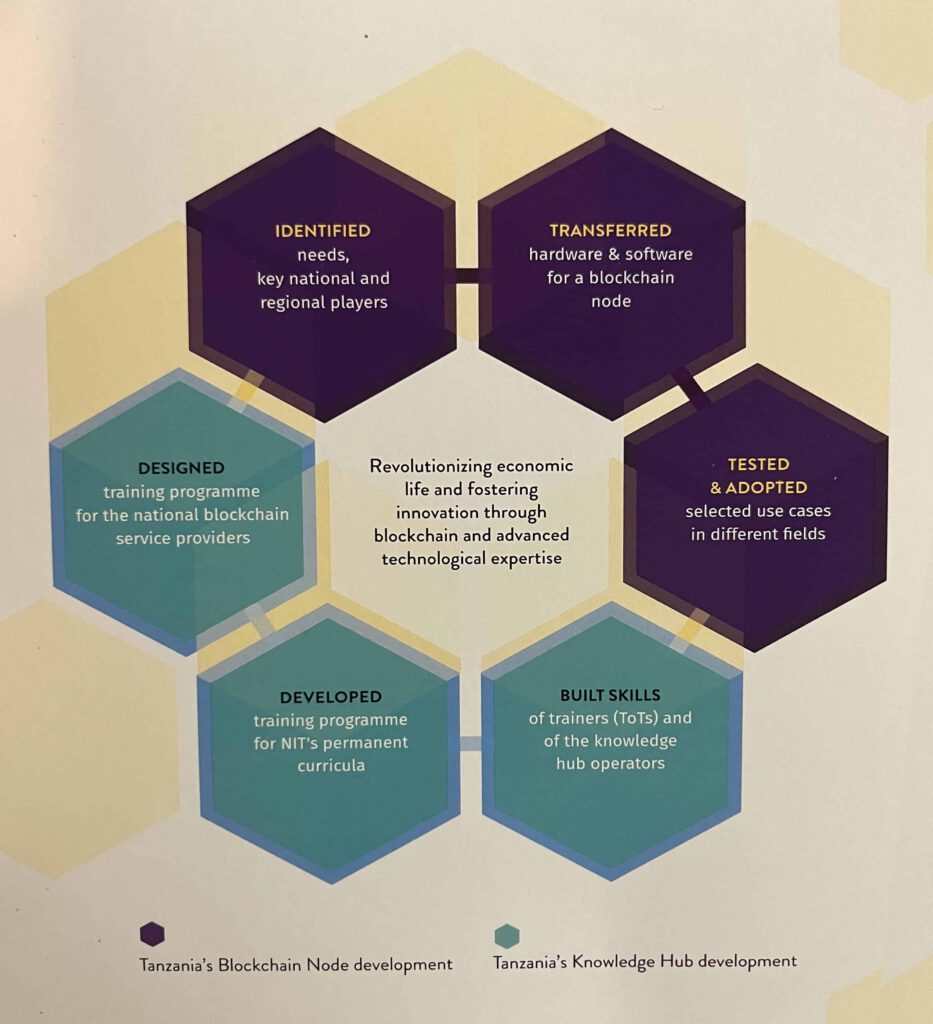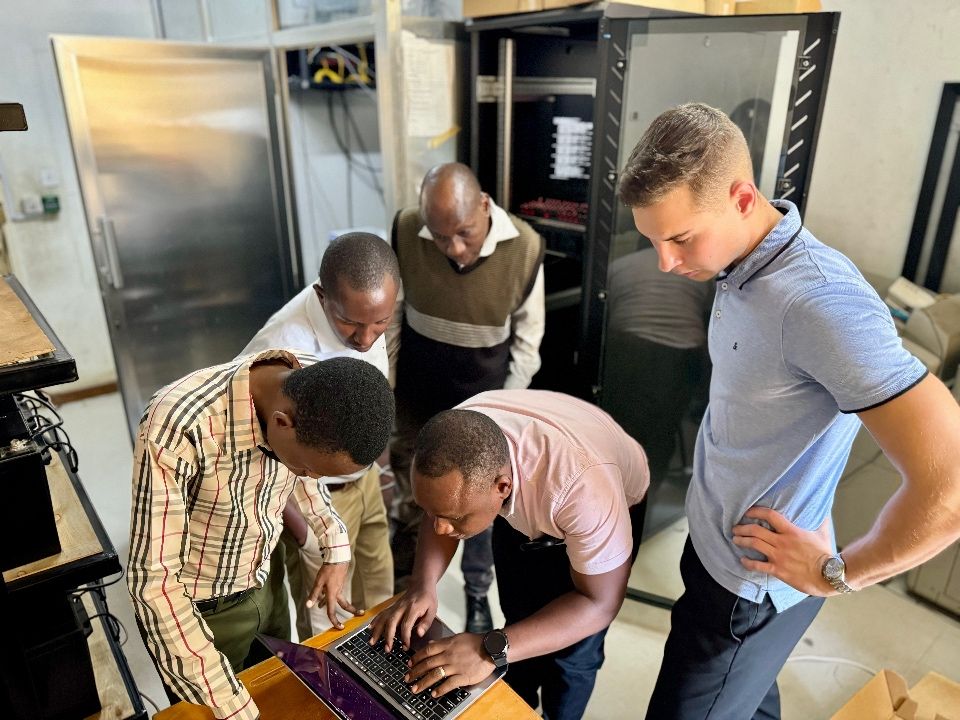Tanzania
Establishment of a cross-border blockchain node
Overview
Highlights from the project
Strategy
In cooperation with the beneficiary, the National Institute of Transport (NIT), the project will leverage Slovenian expertise in setting up blockchain infrastructure (SI-Chain on Hashnet protocol) to establish a blockchain knowledge hub and design a nationwide training programme that meets the country's specific needs in bridging knowledge gaps for efficient management and application of the blockchain technology. NIT is a leading academic institution in Tanzania that specializes in producing competent professionals to promote innovation and sustainable development in the country. As the project's government coordinating agency, the Ministry of Information, Communication and Information Technology of Tanzania plays a pivotal role in promoting digitalization, and technology adoption towards a smoother 4|R transition. The Ministry's partnership with UNIDO aims to strengthen national capacities to adopt blockchain technologies while upgrading the country's skills base.
SI Chain - High-Capacity Blockchain
SI Chain is Slovenia's national blockchain infrastructure project, providing a high-speed and high-capacity blockchain network. It is the first-of-its-kind national blockchain infrastructure service powered by the Hashnet protocol, allowing developers in both the public and private sectors to test their applications.
Hashnet Protocol - Security and Transparency
It is a Distributed Ledger Technology (DLT) that is faster and more energy-efficient than other DLT solutions. It enables the establishment of smart contracts. The protocol is particularly efficient for high-speed transactions, it ensures a secure network by preventing manipulation of transactions or their order.
Expected Results
The project will contribute to implementation of the National Five-Year Development Plan by boosting Tanzania's economic performance and market access through an improved environment that offers blockchain-powered verification, interoperability and reliability. Targeted efforts will be channelled to ensure relevant knowledge transfer to foster the uptake of digital and 4R technologies. As a result, the project is expected to help transform and optimize processes related to E-governance, increasing the efficiency of public services, while also reinforcing competitiveness and driving innovation of SMEs based on improved access to blockchain infrastructure.
Context
In recent years, Tanzania has embarked on an innovation-oriented development path emphasizing the importance of e-governance, robust private sector and reliable digital infrastructure. At the same time, the country's economy has been facing a number of challenges preventing it from making a leap to the next level. Those are associated with labour market shortages in highly skilled professionals, insufficient entrepreneurship incentives, particularly in the technology and innovation sector, as well as limited scope of reforms in e-governance. Yet, Tanzania is among the top 3 innovation leaders in Sub-Saharan Africa, only outranked by South Africa and Kenya. The introduction of state-of-the-art technologies, such as blockchain, could provide a major boost to digitalization and innovation-driven entrepreneurship, while also ensuring the efficient and secure provision of public services to citizens.
Tanzanian Mission
In cooperation with the beneficiary, the National Institute of Transport (NIT), the project will leverage Slovenian expertise in setting up blockchain infrastructure (SI-Chain on Hashnet protocol) to establish a blockchain knowledge hub and design a nation-wide training programme that meets the country’s specific needs in bridging knowledge gaps for efficient management and application of the blockchain technology. NIT is a leading academic institution in Tanzania that specializes in producing competent professionals to promote innovation and sustainable development in the country.


Tanzanian Mission
Historic Milestone
We are beyond thrilled to announce the first successful integration of a cross-border & cross-continent blockchain node, connecting the National Institute of Transport (NIT) in Dar es Salaam, Tanzania.



